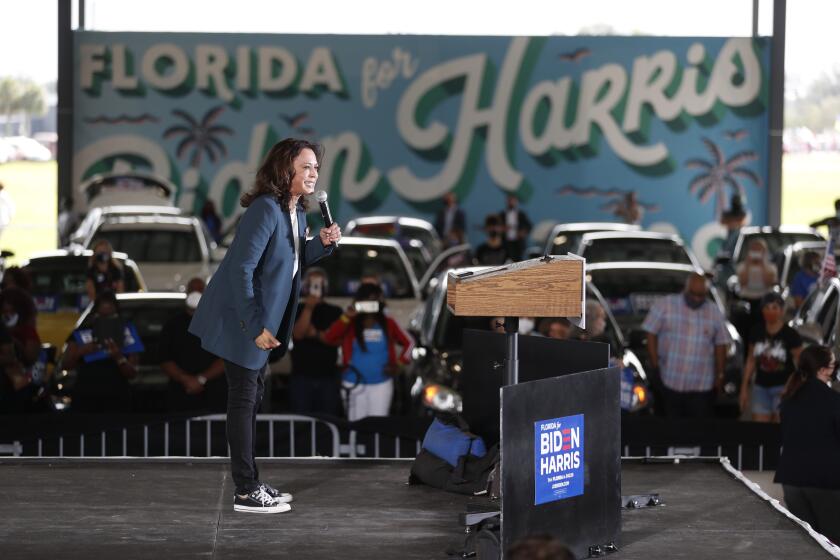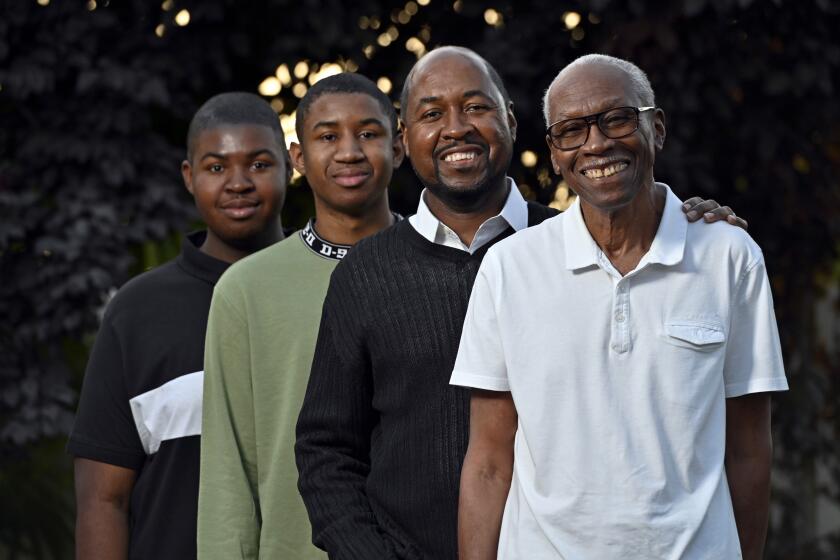Black churches’ Souls to the Polls efforts, even during COVID-19, aim to boost voter turnout
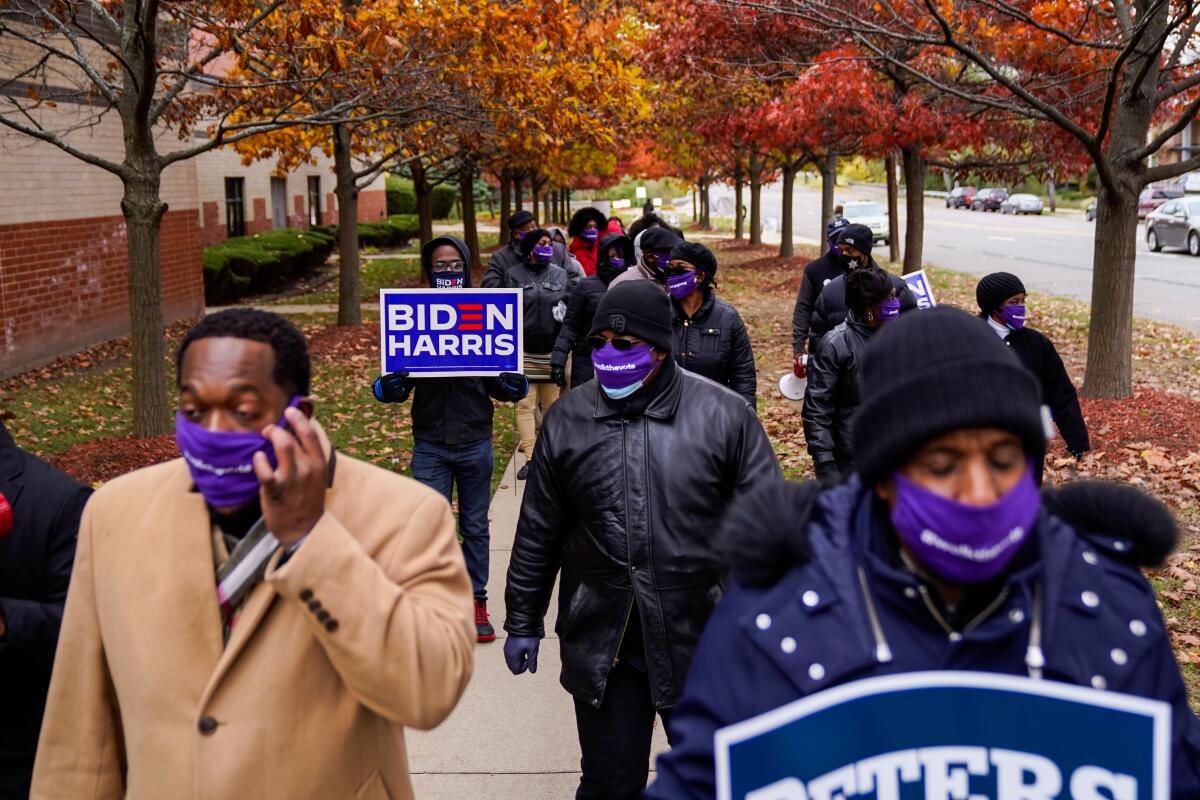
- Share via
DETROIT — On a bitterly cold and gray afternoon, Bishop Charles H. Ellis III led dozens of his parishioners in a march around his church’s northwest Detroit neighborhood after Sunday services.
“What time is it?” Ellis and others cried into megaphones, as they filed past a laundromat, liquor store and gas station. The marchers yelled back, “Time to vote!”
Ellis, pastor of the 6,000-member Greater Grace Temple, said it was crucial to get Black voters to the polls to avoid a repeat of the 2016 election. President Trump won Michigan by fewer than 11,000 votes, in part because of depressed turnout among Black voters.
In recent decades, Black churches have frequently held Souls to the Polls events on Sundays before election day, festive affairs often featuring rides or caravans of cars to polling places after Sunday services.
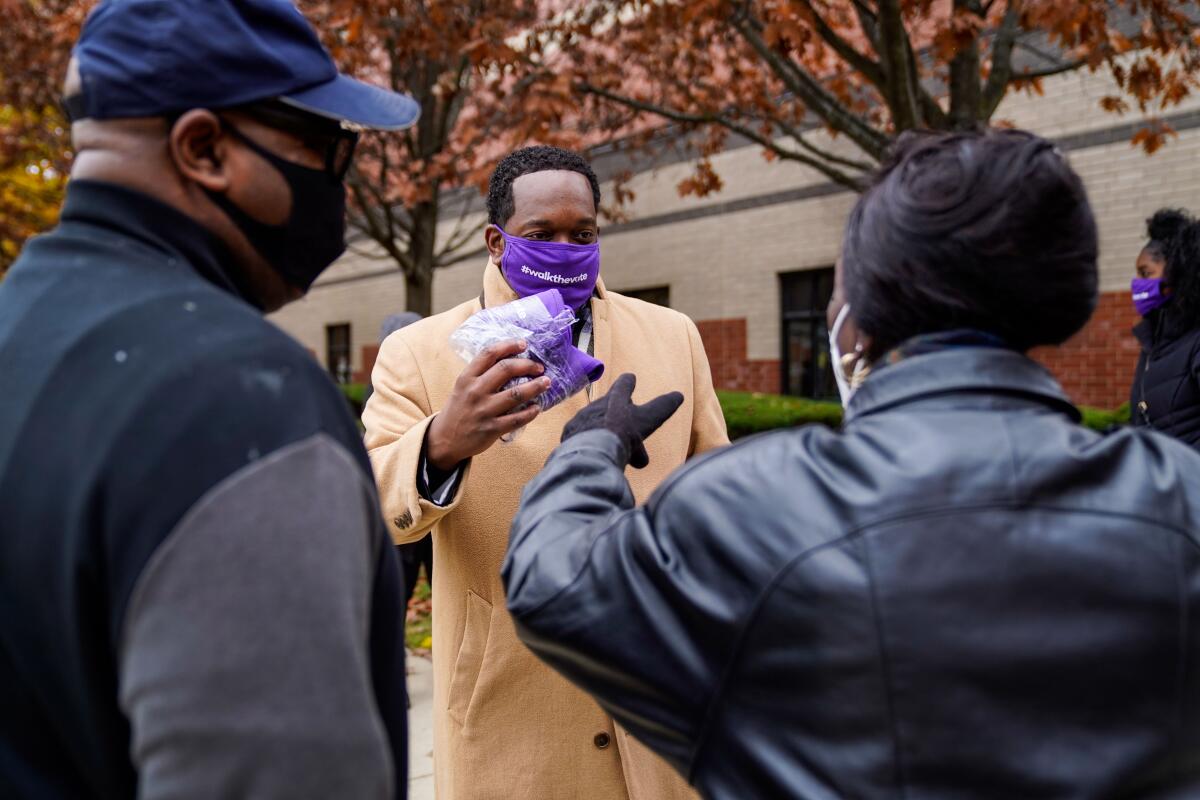
But far fewer such events are taking place this year because of the COVID-19 pandemic. Many churches have gone from in-person to virtual services; large in-person gatherings are discouraged. Efforts such as Sunday’s Walk the Vote at Greater Grace Temple are aimed at getting out the vote in a safe manner.
“It’s important to be out here because I have a voice and my ancestors didn’t have a voice — it was taken from them,” parishioner and Walk the Vote volunteer Latoyua Hart, 35, said shortly before she marched with Ellis. “So now, we have an opportunity to get people out here on the street to make a change. And so that’s why I’m out here.”
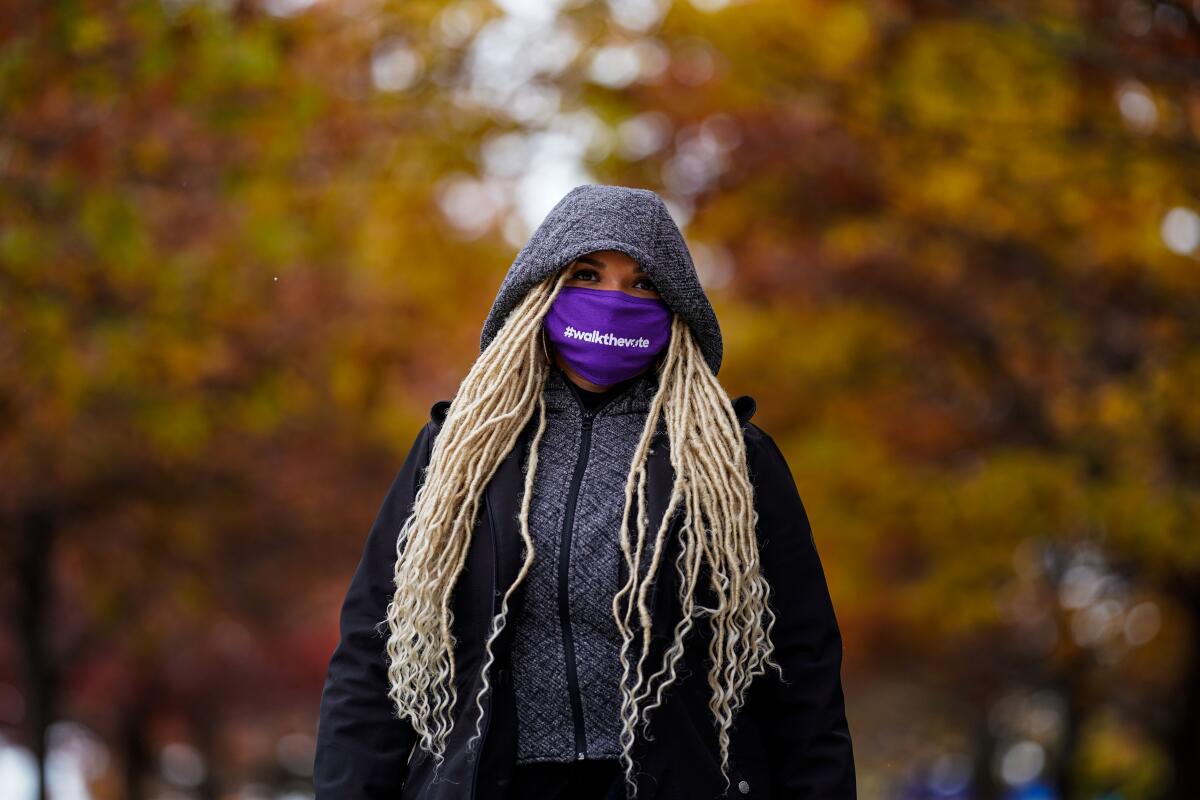
In at least one location, a similar effort was met with resistance, arrests and pepper spray. A few hundred people, including children, who marched Saturday from a church to the polls on the final day of early voting in Graham, N.C., were pepper sprayed by police, according to the News & Observer newspaper.
Souls to the Polls efforts originated in Florida, but they have been subdued there this year as well.
Republican presidential candidates long had Florida’s Duval County as a dependable source of votes. But this once ruby red county is now a battleground.
“Traditionally, we are in groups, we’re hugging, we’re handing out food, we are partying in the streets,” said Jasmine Burney-Clark, founder of the Equal Ground Education Fund. “That is not the same case this election cycle, but we thought it was important to keep the same energy.”
Near a voting center at a branch of the Seminole County Library in Sanford, Fla., on Sunday, a pastor led a prayer circle of more than a dozen people under the shade of a tree that offered refuge from the blistering heat. Afterward, church leaders and members headed to a church in nearby Goldsboro for a drive-through event where volunteers handed out hot plates of chicken or ribs.
Postal worker Lovisa Moore, 54, said she had participated in past Souls to the Polls events. This year, Moore said as she picked up her food, she voted early, in-person. The pandemic, she said, would not stop her.
“In spite of all the circumstances of 2020, and the era of the coronavirus, what needs to get done gets done,” the Sanford resident said.

Black voters are a pivotal group in many states, and depressed turnout in 2016 is among the reasons Trump beat Democratic nominee Hillary Clinton.
Three generations of a Las Vegas family tell how it feels to be a Black man in America in a season of protest.
Voter turnout in Wayne County, home to Detroit, saw the sharpest decline in votes for the Democratic presidential nominee between 2012 and 2016 of any county in the nation — Clinton received 76,402 fewer votes than President Obama did, according to an MIT study. Number two and three on the list were Cuyahoga County, Ohio, and Milwaukee County, Wis. Turnout in all three could make the difference in their respective states, which Trump won in 2016.
In Detroit, Ellis saw the lackluster turnout coming in 2016 — he said there were few lines at the polling place at his church, an indication that Black turnout would be down. Democratic nominee Joe Biden’s prospects look better in this year’s polls, but Ellis, a vocal supporter of the former vice president and his running mate, California Sen. Kamala Harris, said people should take nothing for granted.
“We’re not leaving anything to chance. We are working all the way up to Tuesday,” he said as wind swirled fallen leaves into the air and snow fell to the ground. “Hopefully this effort today, in this weather, demonstrates that we are putting in the work to ensure that every ballot gets to the polling place and that it gets counted.”
More to Read
Get the L.A. Times Politics newsletter
Deeply reported insights into legislation, politics and policy from Sacramento, Washington and beyond. In your inbox three times per week.
You may occasionally receive promotional content from the Los Angeles Times.
